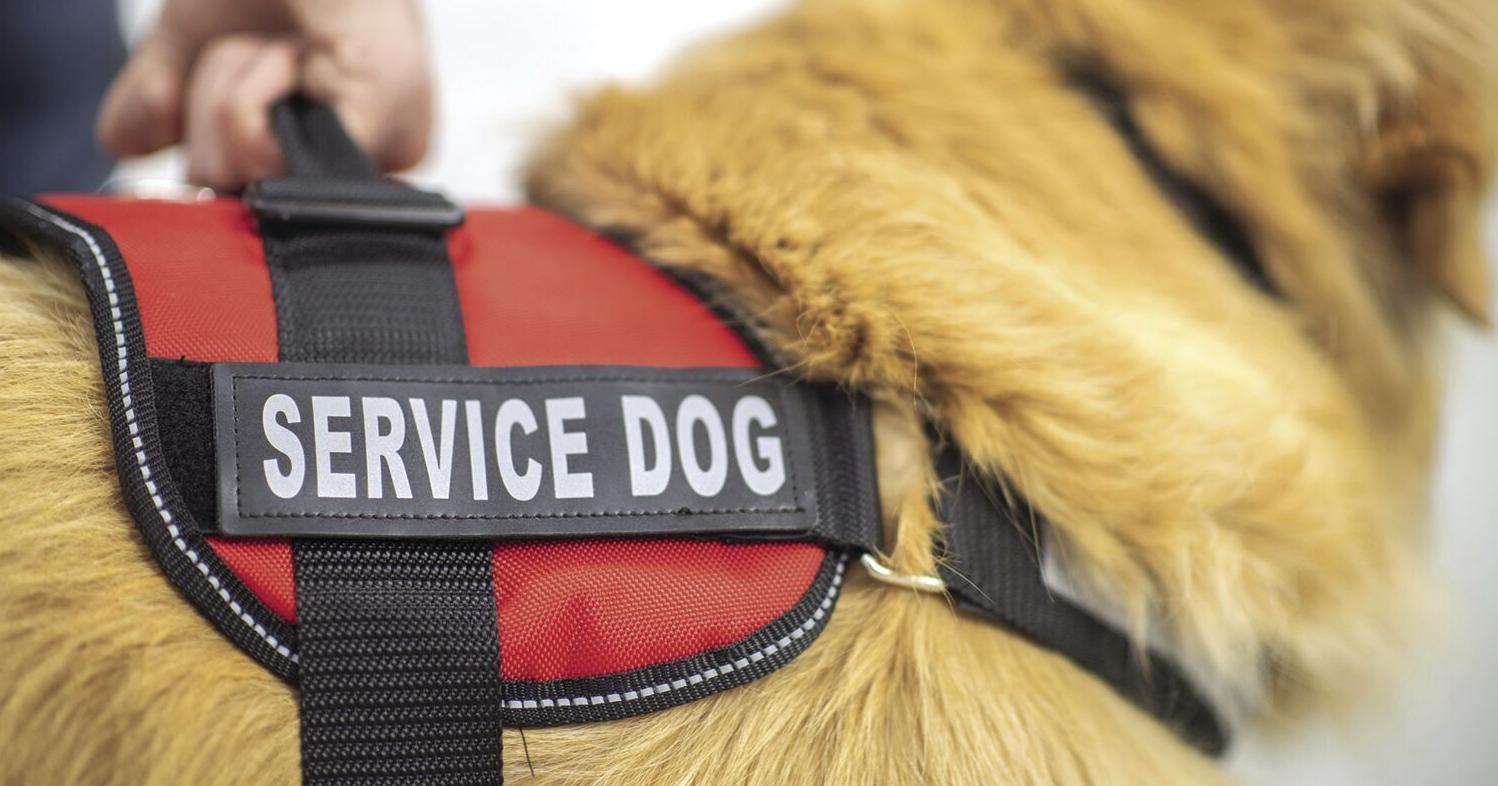- October 3, 2022
- No Comment
- 6 minutes read
Dog lovers wanted: Duke's Puppy Kindergarten seeks volunteers to boost service dogs – Greensboro News & Record

Get local news delivered to your inbox!
Maestro spends his days like most other kindergartners: playing outside with his friends, taking afternoon naps, enjoying classroom snacks and learning to share his toys with his classmates.
It’s a simple life for this 11-week-old golden retriever-lab mix at the Duke Puppy Kindergarten.
Part of the university’s Canine Cognition Center, a research program that studies dogs’ mental capabilities, the kindergarten helps prepare pups to be service dogs for people with disabilities.
“We’re trying to help graduate more service dogs,” said Vanessa Woods, director of the Puppy Kindergarten.
Maestro is one of four pups in the current class. From age 8 to 20 weeks, he will engage in all sorts of standard puppy activities: walks, naps, belly rubs and playtime with the other pups (Nancy, Neely and Madeline).
But as part of Duke’s program, he will also begin training and getting tested on his self-control, memory, temperament and cognition, qualities that will make him a good candidate for service dog work later in his life.
Since 2019, the Canine Cognition Center has partnered with Canine Companions, a nonprofit that trains service dogs in advanced commands, and later pairs them with those in need. These dogs have gone on to help people who are on the autism spectrum, who use wheelchairs, or who have post-traumatic stress disorder and a variety of other conditions that can impact people’s ability to care for themselves.
“I think everyone has the experience of losing our independence, at least temporarily,” Woods said.
Once fully trained, service dogs can perform an array of tasks for their owners. They can turn lights on and off, pick up items from the floor, retrieve bags or purses and even help with laundry by transferring clothing in and out of the washer, dryer and laundry basket.
Lab Coordinator Candler Cusato said these small tasks can be game changing for a person’s lifestyle.
Woods has seen the impact of service dogs firsthand. One of her team’s earliest graduates became a service dog for a little girl in Charlotte who has severe autism and had cerebral malaria as a child, which can cause neurological and behavioral problems, cognitive deficits and epilepsy in survivors.
Woods said service dogs can be particularly helpful in situations like this where someone struggles with social interaction.
“(The dog) gives people a focus,” Woods said, opening the door for communication with others without forcing the dog’s handler to be the center of attention.
Training can put the dogs’ self-control to the test.
Woods often will place a treat in front of the dog and ask them to wait for a hand signal to eat it. As the training progresses, Woods will ratchet up the difficulty of the exercise. Additional treats may be placed before the dog, or a treat may be placed out of the dog’s sight, usually under a cup, and the dog must learn to trust that the treat is still there, even if they can’t see it.
Service dog training standards are incredibly high, and it can take up to two years to determine if a dog has the necessary skills and temperament for the job.
Although the Puppy Kindergarten’s graduates have historically done well at the center, Woods said only 30% to 50% actually pass the certification as adults and become working service dogs.
“The dogs that make it, they have a purpose,” she said. “They want to serve.”
This has led to an ongoing service dog shortage, and Woods and her team are looking for community members to help bridge the gap.
For 18 months, participants will raise a dog from Canine Companions as their own. About every two weeks, they will take the dogs to Duke’s Canine Cognition Center for testing. Woods and her team will collect information on the dogs’ abilities. At the end of the 18 months, volunteers will return the dogs to be placed for further service dog training.
“We want people who will contribute to the science,” Woods said.
Woods and Cusato hope their research will help better predict the necessary traits of a good service dog, with the goal of more dogs passing the certification as adults.
As impossible as it sounds to ask someone for a dog they have raised for over a year, Cusato and Woods want to reassure potential volunteers how life-changing a fully trained service dog can be to its owner.
“Of course it’s hard to give up a dog you’ve spent 18 months raising,” Woods said.
“I still cry every time,” Cusato said. “But I’m comforted by the knowledge that they’re going to give someone their freedom back.
For Woods and Cusato, this is a chance for dog lovers to give back to their community in a powerful way. Volunteers have the opportunity to give someone their independence back, Woods said.
“It’s a gift you give,” Cusato said.
Interested volunteers can apply through Canine Companions’ website at canine.org/get-involved.
While Maestro and his friends have a long way to go before they become service dogs, for now they will continue their lessons and enjoy walking around Duke’s campus, bringing smiles to everyone they encounter.
Get local news delivered to your inbox!
Get up-to-the-minute news sent straight to your device.

